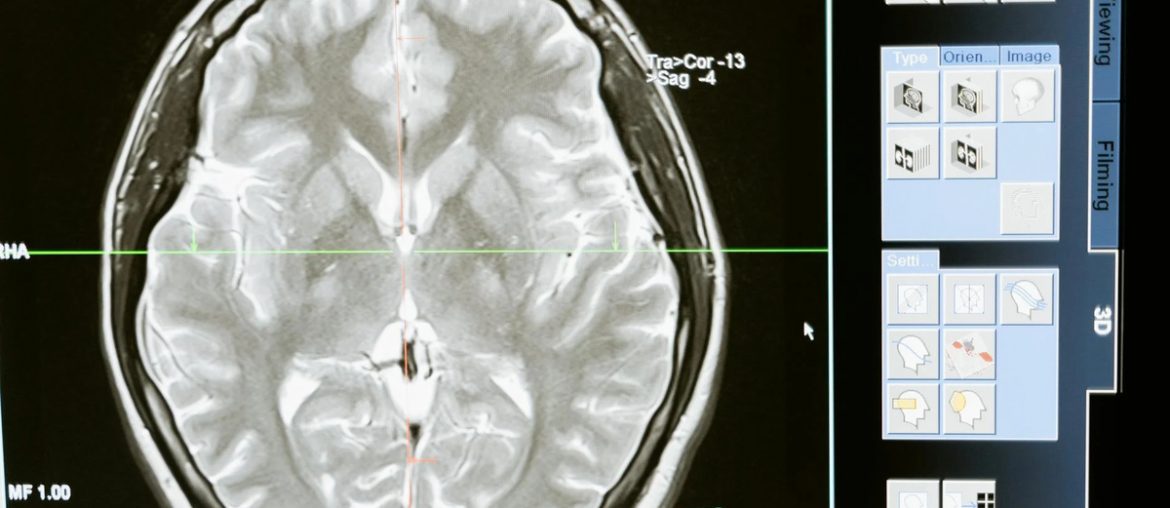Ever felt lost in your career journey, unsure if you’re truly following your calling? You’re not alone. In today’s competitive job market, making the right career choice isn’t just about following your gut – it’s about understanding yourself scientifically and systematically. Enter psychometric assessments, the powerful tools that are revolutionizing career planning. These scientifically backed evaluations do more than just measure your skills; they unlock insights into your personality, aptitudes, and potential that you might never have discovered.
From Fortune 500 companies to career counsellors, professionals worldwide are increasingly relying on these assessments to make smarter hiring and career development decisions.
In this comprehensive guide, we’ll explore how psychometric assessments can be your compass in career planning, examining everything from understanding different types of tests to implementing their results in your professional journey. Whether you’re a fresh graduate, considering a career switch, or looking to climb the corporate ladder, you’ll discover how these powerful tools can illuminate your path to professional success.
Understanding Psychometric Tests
Whether you’re exploring career paths, enhancing team dynamics, or identifying leadership potential, psychometric assessments offer a reliable way to understand strengths, preferences, and areas for growth. By breaking down complex traits into measurable dimensions, these tests serve as a foundation for personal and professional development.

Types of Assessments Available
Psychometric assessments generally fall into three main categories:
- Aptitude Tests: Measure cognitive abilities, reasoning, and problem-solving skills
- Personality Assessments: Evaluate behavioral traits, work style, and interpersonal characteristics
- Interest Inventories: Identify career preferences and motivational factors
Key Traits and Abilities Measured
Modern psychometric tests evaluate multiple dimensions:
- Cognitive abilities:
- Numerical reasoning
- Verbal comprehension
- Abstract thinking
- Spatial awareness
- Numerical reasoning
- Personality factors:
- Leadership potential
- Team orientation
- Stress tolerance
- Decision-making style
- Leadership potential
Scientific Validity and Reliability
Quality psychometric assessments must meet strict statistical criteria:
- Test-retest reliability above 0.7
- Internal consistency measures exceeding 0.8
- Validated across diverse demographic groups
- Regular updates to maintain relevance
Industry Standards and Certifications
Professional psychometric assessments adhere to established guidelines:
- International Test Commission (ITC) standards
- American Psychological Association (APA) criteria
- British Psychological Society (BPS) certification
- ISO 10667 compliance for occupational assessment
Now that you understand the fundamentals of psychometric testing, let’s explore how these assessments can benefit your career development journey.
Recommended Read: Guide Students on Making Career Decisions.
Benefits of Career Development
Career development is a journey of discovering and refining your unique strengths, skills, and aspirations. Psychometric assessments play a crucial role in this process by uncovering hidden talents, aligning work preferences with job roles, and providing a clear roadmap for growth.

Identifying Natural Strengths
Psychometric assessments serve as powerful tools in uncovering innate talents and abilities that individuals might not be consciously aware of. These assessments measure:
- Cognitive capabilities
- Problem-solving approaches
- Leadership potential
- Creative thinking patterns
- Analytical abilities
Understanding Work Preferences
These assessments reveal crucial insights about an individual’s preferred working style and environment. Key aspects include:
- Preferred team dynamics (solo work vs. collaborative environments)
- Ideal work pace and pressure tolerance
- Communication style preferences
- Decision-making approaches
- Adaptability to change
Matching Skills to Job Roles
Psychometric tests create a comprehensive skills profile that aligns with specific career paths. They help identify:
- Core competencies that match industry requirements
- Potential skill gaps that need development
- Transferable skills for career transitions
- Role-specific aptitudes
- Growth potential in various career tracks
By understanding these elements, career counsellors can guide individuals toward roles that match their qualifications and align with their natural inclinations and working style preferences. Now that we understand the benefits, let’s explore how these assessments are implemented in professional settings.
Implementation in Professional Settings
Corporate Recruitment Practices
Organizations leverage psychometric assessments to streamline their hiring processes and ensure better candidate-role fit. HR teams use these tools to:
- Evaluate personality traits and work styles
- Assess cognitive abilities and problem-solving skills
- Measure emotional intelligence and leadership potential
- Screen candidates for cultural fit
Career counselling Applications
Professional career counsellors integrate psychometric tools to help clients make informed decisions. Key applications include:
- Identifying natural strengths and talents
- Mapping personality types to suitable career paths
- Analyzing work preferences and motivators
- Discovering potential career transitions
Educational Guidance
Educational institutions implement psychometric assessments for:
- Stream selection and subject choice guidance
- College major recommendations
- Career path alignment with academic strengths
- Identifying learning styles and study preferences
Leadership Development Programs
Organizations utilize assessments to:
- Identify high-potential employees
- Create targeted development plans
- Measure leadership competencies
- Track progress in leadership capabilities
Team Building Strategies
Psychometric tools enhance team dynamics through:
- Role allocation based on complementary strengths
- Conflict resolution style identification
- Communication preference analysis
- Team composition optimization
Now that we understand how psychometric assessments are implemented across various professional settings, let’s explore how to interpret these assessment results effectively.
Interpreting Assessment Results
Reading Score Patterns
Score patterns in psychometric assessments reveal crucial insights about an individual’s strengths, preferences, and potential career paths. Key points to consider when analyzing patterns include:
- Consistency across similar traits or abilities
- Notable peaks and valleys in different competency areas
- Correlation between various assessment dimensions
- Pattern alignment with specific career requirements
Understanding Percentiles
Percentile scores place your results in context by comparing them to a reference group. A percentile of 75 means you scored higher than 75% of the comparison group. Important aspects of percentile interpretation include:
- Reference group characteristics and relevance
- Distribution of scores across different scales
- Relative strengths and areas for development
- Statistical significance of score differences
Applying Insights to Career Choices
Converting assessment results into actionable career decisions requires careful analysis and reflection. Consider these key factors:
- Alignment between high-scoring areas and career requirements
- Integration of multiple assessment results for a comprehensive view
- Balance between abilities, interests, and personality traits
- Practical implications for specific job roles or industries
Professional roles that match your highest percentiles often lead to greater job satisfaction and success. Now that you understand how to interpret your assessment results, let’s explore how to make informed career decisions based on these insights.
Making Informed Career Decisions
Aligning Results with Career Goals
Your psychometric assessment results serve as a valuable compass for career navigation. Match your personality traits, interests, and aptitudes revealed through testing with specific career paths that align with these characteristics. Create a matrix of your strengths against potential career options to identify the most promising directions.
Evaluating Job Fit
Consider these key factors when assessing job fit:
- Work environment preferences (structured vs. flexible)
- Communication style compatibility
- Required skill sets versus your natural abilities
- Value alignment with potential employers
- Growth opportunities within the role
Planning Professional Development
Transform assessment insights into actionable development plans by:
- Identifying skill gaps between current abilities and desired roles
- Prioritizing learning opportunities based on assessment results
- Selecting relevant career counselling courses and training programs
- Setting realistic timelines for skill acquisition
Creating Action Plans
Develop a structured approach to reach your career objectives:
- Set SMART goals based on assessment findings
- Break down long-term objectives into manageable steps
- Establish milestone markers to track progress
- Include specific timelines for each development activity
Your psychometric assessment results provide objective data to support these decisions. Regular review and adjustment of your action plans ensure you stay on track with your career development goals. As you implement these strategies, you’ll want to familiarize yourself with some common assessment tools that can further support your career journey.
Common Assessment Tools
Personality Inventories
The Myers-Briggs Type Indicator (MBTI) and Big Five Personality Test stand as cornerstone tools in career assessment. These inventories help identify personality traits that align with specific career paths, providing insights into work preferences and communication styles.
Aptitude Tests
Career aptitude assessments measure specific abilities crucial for various professions:
- Numerical reasoning for finance-related roles
- Verbal comprehension for communication-intensive positions
- Spatial awareness for design and engineering careers
- Mechanical reasoning for technical professions
- Abstract reasoning for problem-solving roles
Interest Assessments
The Strong Interest Inventory and Holland Code (RIASEC) assessments reveal career preferences by evaluating:
- Professional interests
- Work environment preferences
- Industry inclinations
- Activity preferences
- Subject matter interests
Emotional Intelligence Measures
Modern workplace success heavily relies on emotional intelligence (EI) assessments that evaluate:
- Self-awareness capabilities
- Relationship management skills
- Social awareness levels
- Decision-making abilities under pressure
These tools provide varying perspectives on an individual’s potential career fit. When used together, they create a comprehensive profile that helps in making well-informed career decisions. The key lies in selecting the right combination of assessments based on specific career exploration needs and professional goals.
Looking ahead, we’ll explore how to effectively use these assessment results to make informed career decisions that align with your professional aspirations.
Conclusion:
Making career decisions can be significantly more straightforward with the guidance of psychometric assessments. These scientifically designed tools provide valuable insights into your personality traits, aptitudes, and work preferences, helping align your career choices with your natural strengths and inclinations.
Remember that psychometric assessments are not meant to dictate your career path but rather serve as powerful tools in your professional development journey. By combining these assessment results with proper interpretation, career counselling, and self-reflection, you can make more confident and informed decisions about your professional future. Take the first step today by exploring reputable psychometric tools and working with qualified professionals to unlock your career potential.
If you’re passionate about guiding students toward the right career paths and wish to join the career counselling field, the Global Career Counsellor Program is a perfect starting point. Offered by Univariety in collaboration with UCLA Extension, this industry-focused program equips you with essential counselling skills in just 50 hours. Over 5,720 individuals have already enhanced their expertise and transformed their careers through this program.
Sukriti is a Hyderabad-based Writer, covering the exciting world of Career Counselling and Entrepreneurship. She also writes about mega-trends in education, diversification for Teachers & other individuals with a focus on how innovation and upskilling can help them grow professionally. She is an MBA in Public Relations & Event Management. When she is not trying to understand complex changes & needs in the counselling and education industry, she enjoys travelling and watching movies with a cup of black ginger tea.












